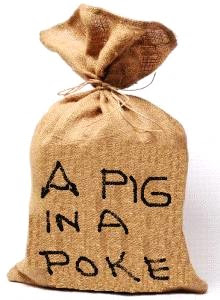We expect good journalism to be descriptive, and we expect such descriptions to accurately portray reality as it passes swiftly before us.
Here is New York Times commentator Ross Douthat describing
potential Democrat President Kamala Harris’ “new way forward.”
Douthat knows that a “new way forward” must differ
substantially from a preceding and discarded “old way.” Harris has been for
nearly four years President Joe Biden’s Vice President. Therefore a new way
must differ in some important respects from Biden’s old way. Problem: American
Vice Presidents in the past have tended to be shadows of the presidents under
whom they serve, firmly attached to them as a tail is attached to a dog.
Douthat wrote in his column, “Sympathy for the undecided voter,”
published in the Hartford Courant, that Harris has “offered herself [to the
voting public] as the turn-the-page-candidate while sidestepping almost every
question about what the supposed adults in the room have wrought across the
last few years.”
These important questions,
artfully evaded by Harris, touch upon “A historic surge in migration that
happened without any kind of legislation or debate. An historic surge of
inflation that was caused by the pandemic but almost certainly goosed by Biden
administration deficits. A mismanaged withdrawal from Afghanistan. A stalemated
proxy war in Eastern Europe with a looming threat of escalation. An elite lurch
into woke radicalisms that had real world as well as ivory tower consequences,
in the form of bad progressive policymaking on crime and drugs and schools.
“All of this and more the Harris
campaign hopes that voters forgive or just forget while it claims the mantel of
change and insists that ‘we’re not going back.’”
These few sentences by Douthat
meet the test of good journalism cited above.
In passing, this writer may note
that Douthat is not a semi-conscious Trump-thumper. Some of us wonder and worry
whether Douthat may in the near future be defenestrated for ideological
insubordination by the editor of the New York Times’ editorial page.
Harris, unvetted by both a primary
campaign and an unusually tepid national media, remains a mystery a little more
than six weeks before the general election. Her too friendly “interviews” are
so far less useful as interrogatories than they are as fodder for campaign
advertising clips.
Harris has straddled decisive
issues on the economy, inflation and the imaginary U.S. southern border. Because
her positions on important issues remain a mystery, she has no mandate to
govern once she settles herself in the oval office. Former Secretary of State
Hillary Clinton believes that mandates and proper vetting are unnecessary.
Nancy Pelosi is famous for having said that the U.S. legislature must pass a
budget so that we would know what’s in it. Similarly, the nation must elect
Harris to the presidency before it knows what’s in her.
If Harris is successful in
ridding the country of the “greatest threat to democracy since the Civil War” –
only one of the silly charges leveled by the anti-Trump opposition – she will
be the only president in U.S. history to enter the White House with an entirely
free hand, unburdened by public party platforms, free of the usual political guardrails,
and also unburdened by history. What can Harris’ pledge that the US should
enter the future unburdened by the past mean other than, as Henry Ford once said,
“History is bunk”?
Harris is not the only unexamined
mystery awaiting resolution. Both political parties are shrinking in number,
while the pool of unaffiliateds or independents is expanding.
But who are the independents? Are
they expats from the nation’s two major parties or are they principled
Thoreauians, parties of one, or Groucho Marxians who respectfully decline to
join any party that would have them as members? The answer to such questions is
important because we are told that most elections depend upon the independent
vote.
If independents are expats from
the two major parties, their votes may reflect their dissatisfaction with the
party they have abandoned. It has been generally assumed that the independent
vote is unpredictable. This may not be so. Parties in states that are
predominantly Democrat – Connecticut is one – may want to tailor a party pitch
to recover their lost sheep. Likewise Republicans in Connecticut may want to fashion
a different political approach to those who have, for one reason or another,
fled the majority Democrat party.
But in the absence of firm data –
or at least a working profile of the independent voter – we are left with a
mystery that any amateur Sherlock Holmes, armed with the right questions, might
easily solve. Without a bit of hard delving, the path of independents and the
path of future US foreign and domestic policies in a Harris administration are
both pigs in pokes.

Comments